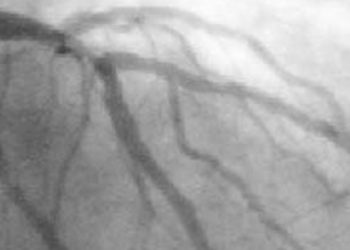Postoperative complications linked with unplanned hospital readmissions
Image: PD
1. Patients readmitted within 30 days postoperatively had significantly higher complication rates (relative risk = 3.4) than non-readmitted patients, and patients readmitted with a postoperative complication had higher cost of readmission.
2. Reducing postoperative complication rates by 5% for the 20 procedures causing the greatest numbers of readmissions could prevent 2092 readmissions and $31 million in Medicare costs.
Evidence Rating Level: 2 (Good)
Study Rundown: Unplanned hospital readmissions cost Medicare several billion dollars per year. In 2009, Medicare/Medicaid began penalizing hospitals for excessive readmissions related to certain diagnoses in an effort to reduce readmissions and costs. Surgical patients may be readmitted for a variety of reasons, including exacerbations of a preoperative comorbidity and postoperative complications. This study demonstrated that the rate of postoperative complications was significantly higher in patients with unplanned hospital readmissions. Moreover, patients readmitted with a postoperative complication had a higher cost of readmission than patients readmitted without a postoperative complication. The expected cost savings of reducing the complication rate of the top 20 procedures causing readmissions was estimated to be $31 million. One weakness of this study was the fact that the authors studied 30-day postoperative readmission rate, rather than 30-day postdischarge readmission rate.
Click to read the study in Annals of Surgery
Click to read an accompanying editorial
Relevant Reading: Risk factors for 30-day hospital readmission among general surgery patients
In-Depth [retrospective cohort study]: This multicenter study examined Medicare inpatient claims and complications identified from the AmericanCollege of Surgeons National Surgical Quality Improvement Program (ACS-NSQIP), as well as procedures identified from the Nationwide Inpatient Sample (NIS). Exclusion criteria included age younger than 65 years and patients for whom Medicare was not the primary payer, did not survive to discharge from the primary hospitalization, or were still hospitalized within 30 days of operation.
75% of readmitted patients in the study returned to the same hospital. The top 20 procedures accounting for the greatest number of readmissions constituted 76% of readmissions. Of the 11,639 readmitted patients, 53% had one or more complications, whereas of the 79,293 non-readmitted patients, 16% had one or more complications (P<0.001). Patients who had an ACS-NSQIP complication were 4 times more likely to be readmitted (33% vs 8%, P<0.001). The cost of a 30-day postoperative readmission for a patient with a postoperative complication was significantly higher ($13,532 vs. $8,469). Reducing the complication rate of each of the top 20 procedures by 5% would prevent 2092 readmissions and result in a cost savings of $31 million (95% CI 28.9 – 33.2), and a 20% reduction of complications would result in a cost savings of $124.2 million (95% CI 115.4 – 133.0).
By James Jiang and Allen Ho
More from this author: Aggressive resuscitation may increase morbidity in blunt trauma patients, Increased inflammatory markers found in nonsurviving pediatric burn patients, Drainage for hemopericardium is safe and reduces hospital stay, Adenotonsillectomy improves behavior in childhood obstructive sleep apnea (CHAT Trial), Plasma-Lyte A improves acid-base status in adult trauma patients
© 2013 2minutemedicine.com. All rights reserved. No works may be reproduced without written consent from 2minutemedicine.com. Disclaimer: We present factual information directly from peer reviewed medical journals. No post should be construed as medical advice and is not intended as such by the authors or by 2minutemedicine.com. PLEASE SEE A HEALTHCARE PROVIDER IN YOUR AREA IF YOU SEEK MEDICAL ADVICE OF ANY SORT. Content is produced in accordance with fair use copyrights solely and strictly for the purpose of teaching, news and criticism. No benefit, monetary or otherwise, is realized by any participants or the owner of this domain.





